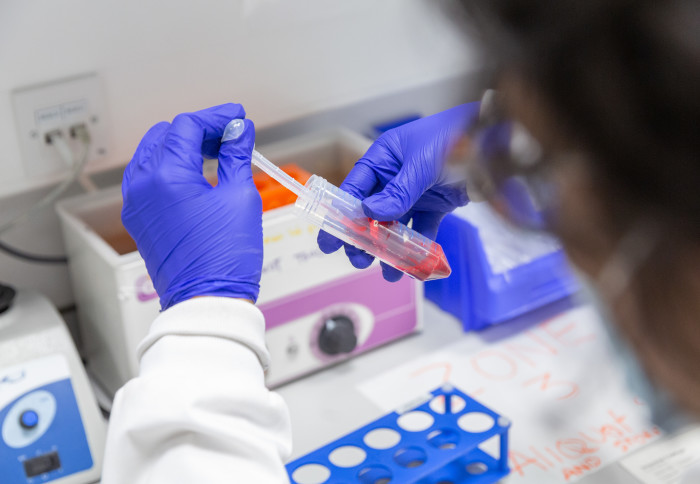Parliamentarians hear of ‘high chance’ of coronavirus vaccine

Two of Imperial’s leading coronavirus experts gave evidence to the House of Lords about their research to tackle COVID-19
Professor Robin Shattock, who is developing a vaccine for COVID-19 and Professor Peter Openshaw, who is tracking how the virus affects the body and immune system, told the Science and Technology Committee about their efforts to fight the virus.
Vaccine development

Professor Shattock updated the Committee on his vaccine research – which has now begun trials.
Professor Shattock told the Committee that he thinks the chance of finding an effective vaccine is ‘high’.
He said: “We think both vaccine candidates being developed in the UK will work individually and we also have the opportunity to look at them both in combination.”
Professor Shattock added that although vaccine success rate tends to be around 10 per cent at clinical testing stage, he is optimistic that a number of effective vaccines will emerge.
Professor Openshaw was also positive about the chances of finding an effective vaccine for COVID-19 and said that he believed there could be different vaccines appropriate for different age groups in society.
Vaccine strategy

Professor Openshaw noted: “There may be some vaccines that provide direct protection to those most vulnerable. But also getting secondary protection by identifying those who are amplifying the responses, such as healthcare works, frontline occupations, those doing public facing jobs, they might be particularly important in terms of people to target to limit the spread within society.”
Professor Shattock said: “It will be very important to have strategies that will allow a booster vaccination if that needs to be done annually or every five years, or particularly for vulnerable groups.
“So that’s something that the vaccine community is looking at very actively. It’s not just rushing out the first wave of vaccination, it’s also having a strategy that will be able to maintain it, if that’s required."
Virus mutations
Professor Shattock said: “In terms of mutations, we don’t see evidence that the COVID-19 virus is changing very significantly, which is very promising.
“If it does change, some of the technologies like the one we’re using with self-amplifying RNA, because its genetic code, it’s very simple to change the code to account for any changes that might occur in the future.”
Virus antibodies

Professor Openshaw said that he is more optimistic now than a few months ago that there will be ‘more durable antibodies’ which can offer protection from re-infection.
Professor Openshaw also thought that the virus had ‘a lot of immunological tricks up its sleeve’, for a virus that had only recently moved into the human population.
He said: “We wouldn’t have thought a virus would behave in such a complex way when its only just been introduced into a new species.”
Article text (excluding photos or graphics) © Imperial College London.
Photos and graphics subject to third party copyright used with permission or © Imperial College London.
Reporter
Thomas Angus [Photographer]
Communications Division
Stephen Johns
Communications Division